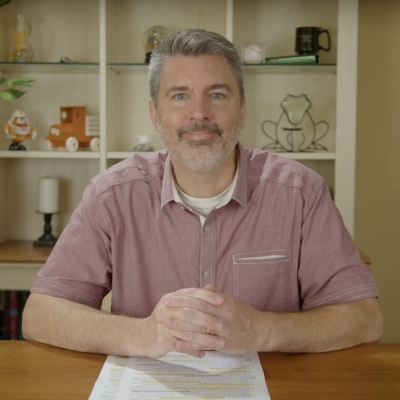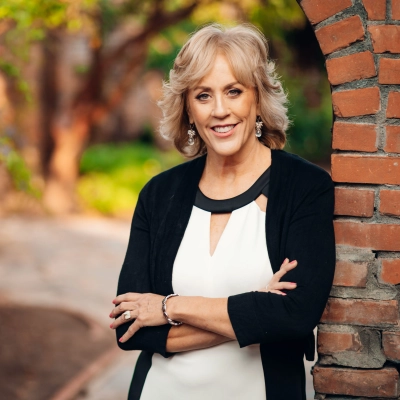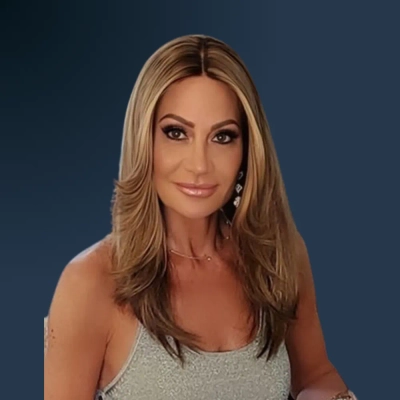9 Common Misconceptions About Marriage Counseling and How to Address Them
Marriage counseling remains misunderstood by many couples despite its proven effectiveness, according to mental health professionals. This article addresses nine common misconceptions about therapy, from the myth that both partners must change to the belief that some relationships are beyond repair. Experts emphasize that successful counseling involves understanding patterns rather than assigning blame, and works best when couples seek help before reaching a crisis point.
Both Partners Must Make Personal Changes
Often people come for marriage counseling to find out how to change the other person because they think the 'problem' is with the other person.
And i believe it takes two people to create a good or bad marriage. I do believe one person changing their behavior can change what happens in a marriage. And I think the best way to make the biggest change in a marriage is for both people to make their own personal changes.
So, I encourage both people come to see me at the same time.
Coach Christine

Therapists Identify Patterns Not Assign Blame
Couples often think that the therapist is going to be a mediator so they come in pitching their sides about how the other person is wrong, needs to change, or is just intolerable. I quickly let them know that I want them to both be heard and understood but that I will work to see the patterns that are happening in their relationship. Then I will work for them to be able to communicate and resolve problems by learning better ways to speak together. It takes some time, but it is important to be nonbiased and build rapport with both of them.
Counseling Focuses on Understanding Not Winning
One of the most common misconceptions I encounter about marriage counseling is the belief that the therapist will "take sides" — or that the space exists to prove who's right and who's wrong. Many couples come in hoping I'll validate their perspective while correcting their partner's. But marriage counseling isn't about determining a winner; it's about helping both people feel seen, understood, and empowered to relate differently.
I explain to couples early on that yes, sometimes one partner may be "right" in a particular moment or situation — but that doesn't make the other "wrong" by intention. Often, what looks like being wrong is actually a misunderstanding filtered through each person's individual lens, experiences, and triggers. We all interpret our relationships through the story we've lived, and that story shapes how we communicate, protect ourselves, and seek connection.
My goal as a therapist isn't to assign blame — it's to uncover the patterns underneath the conflict. I help couples slow down and recognize what's really happening beneath their arguments: the emotions, unmet needs, and protective instincts driving their behavior. I normalize these reactions so partners can stop seeing each other as enemies and start viewing each other as teammates navigating a shared challenge.
Once understanding starts to replace defensiveness, we can build new communication skills that shift the focus from being right to being understood. I teach couples how to respond to one another in ways that promote emotional safety, clarity, and repair — moving from conflict toward resolution and deeper connection.
Ultimately, marriage counseling isn't about proving a point; it's about learning how to listen differently, love more intentionally, and rebuild trust through mutual understanding.

Seek Help Before Crisis Hits
One of the biggest misconceptions I hear is that marriage counseling is only for couples in crisis or on the verge of divorce. I actually tell new clients the opposite -therapy works best before things hit rock bottom. It's like waiting until your car completely breaks down before getting an oil change. I frame it as a chance to deepen understanding all the way from childhood patterns which impact our grown relationships, improve communication, and prevent resentment from building up. When couples come in early, the work is often faster, easier, and more empowering because we're strengthening something that still has a lot of goodwill and love in it.
My name is Rabbi Shlomo Slatkin, M.S., LCPC and together with my wife Rivka, we founded TheMarriageRestorationProject.com as a global initiative to help keep couples together and happy. To learn more about how you can experience six months of marriage counseling in just two days, visit themarriagerestorationproject.com/marriage-intensives

Therapy Requires Active Participation Not Magic
A frequent misconception about marriage counseling is that the therapist will "fix" the relationship for the couple. Many clients come in believing that simply showing up to sessions will automatically make their problems disappear, as if therapy itself is the solution rather than a process that requires their active participation. This can result in frustration or disappointment if change doesn't happen as quickly or effortlessly as they hoped. For new clients, this should be addressed early on by explaining that therapy is not something that's done to them but instead something they do together. A therapist's role is to guide, facilitate, and offer tools, but the real change happens through how partners engage with those tools outside of the therapy room. This shift in perspective helps couples understand that counseling isn't about finding a magic fix but about building new skills, habits, and emotional patterns over time. Once they embrace their active role in the process, therapy often becomes more meaningful, and they start to see real, sustainable progress in their relationship.

No Marriage Is Too Broken
The biggest misconception I see is that couples believe "it's too late for us." By the time people seek help, they've usually been struggling for years, and they show up convinced they're the exception - the one couple who's too far gone to be helped.
But the reality is: you can't be too broken for the right tools to work. The problem isn't that your marriage is uniquely damaged; the problem is you've been fighting without the right equipment. It's like trying to build a house with nothing but a hammer. Of course you're frustrated and exhausted! You don't need more willpower or better intentions. You need a blueprint and the proper tools.
How do you address this with new clients?
First, I give them facts: our weekend marriage intensive has over a 98% success rate. Then I show them testimonial videos from couples who felt exactly as hopeless as they do - including those dealing with affairs, financial betrayal, and years of resentment - who are now thriving. The couples who succeed aren't the ones with the smallest problems. They're the ones most willing to learn.
When it comes to building a healthy marriage, winging it doesn't work. Hoping things will magically improve doesn't work. You wouldn't expect to know how to fly a plane without training, yet somehow we expect to navigate one of life's most complex relationships with zero instruction.
Falling in love is easy, but staying in love is something you have to learn. We give them practical frameworks: how to identify and communicate their emotional needs, how to respond to conflict without stepping into destructive traps, how to heal hurts through structured conversation, rather than explosive arguments or silent withdrawal.
What surprises couples most is how quickly they see results once they have the right tools. Small, consistent habits create massive change. One husband told me, "I thought we'd need months of therapy. We had our breakthrough in one weekend because you gave us a roadmap we could actually follow."
My message to these couple is: you're not too far gone. You're just using the wrong approach. And once you learn the right one, restoration happens faster than you ever imagined possible.

Experiential Work Beats Passive Advice
When most people picture couples therapy, they imagine this:
You and your partner sit side-by-side, facing a therapist, and "talk about your problems."
The therapist might nod, ask questions, or suggest communication skills like "use I-statements" or "don't say always or never."
Bad therapy is advice-giving and endless validation. I've had couples come to me after working with multiple other therapists who did nothing but validate their feelings and hand out "homework." No surprise, they got nowhere.
That's why so many couples resist therapy. It sounds like rehashing the same arguments with a referee in the room.
But my approach at Caring for Couples Counselling Center in Toronto is completely different.
1. You Face Each Other, Not Just the Therapist
Instead of talking about your partner to me, I guide you to turn towards each other.
This is called experiential, enactment-based work. You don't just learn "skills," you live out new ways of relating in real time. Because only direct experience changes your nervous system in ways information never can.
2. We Work Through Reactivity and Self-Protection
Every couple gets stuck in cycles of reactivity:
* One partner pursues, demanding to be understood.
* The other defends, explains, or shuts down.
I don't just teach you to "fight better." I help you notice those patterns as they happen and practice new responses right there in session.
3. Empathy That Actually Heals
Everyone longs not just to be understood, but to feel that their partner understands how they've been hurt. The problem? Most people, and most therapists, don't know how to get past the blocks to real empathy. So couples stay stuck treating surface symptoms instead of healing the root.
I teach a specific type of empathy that works at the nervous system level. When it lands, couples often say it's the first time they've ever truly felt understood.
4. Healing Even "Cataclysmic Events"
I've helped couples repair decades of resentment, betrayal, even what they called "cataclysmic events." Through experiential repair, resentment dissolves and closeness is restored, often in just a few sessions.
Most people don't even know that level of healing is possible.

Calm Nervous Systems Before Addressing Communication
Most couples assume their relationship problems stem from incompatibility or bad communication habits, when the real culprit is usually their nervous systems operating in chronic threat mode. When two people are stuck in that state, they can't access the prefrontal cortex—the part responsible for empathy, perspective-taking, and rational problem-solving. They're essentially running on amygdala-driven reactivity instead.
With new clients in my practice who mention relationship strain, I start by addressing the nervous system first. We work on downregulating their threat response through specific neuroscience-backed interventions: breathing patterns that calm the vagus nerve, mindfulness practices that strengthen their interoceptive awareness, sometimes even targeted lifestyle changes around sleep and stress management. Once their baseline threat level drops, they suddenly have access to the cognitive flexibility needed for actual emotional attunement.
I had an executive client whose marriage was deteriorating because every conversation with his spouse triggered a defensive response. He wasn't being stubborn or unsupportive, really—his brain was in protection mode from chronic work stress. Once we rebuilt his parasympathetic resilience over eight weeks, he could finally hear what his partner was saying without his amygdala hijacking the interaction.
The misconception isn't about communication skills at all. It's that couples think their relationship problem exists in the relationship, when it's actually a dysregulation problem happening in their individual nervous systems.
Therapists Support Wise Adult Behavior
That I'm going to take the side of the female partner.
I tell the potential clients that I take the side of both of you showing up as your wise adult self, not in triggered adaptations.
Sometimes we have to rein in those adaptations, or older ego states, because maladaptive behavior may have been modeled while growing up, or we had to adapt to it in order to psychologically survive.




